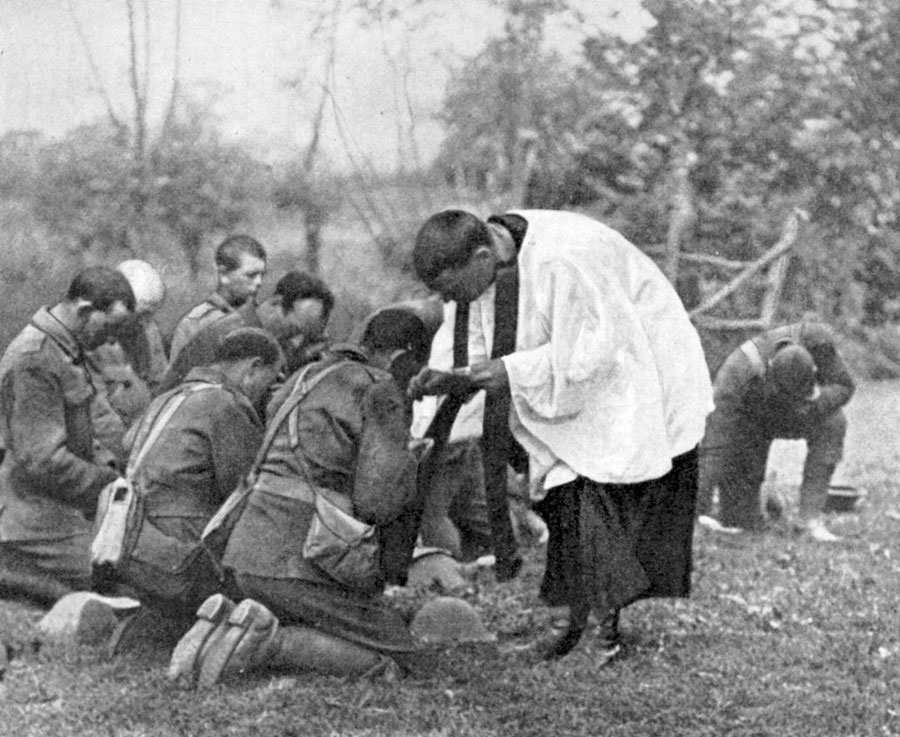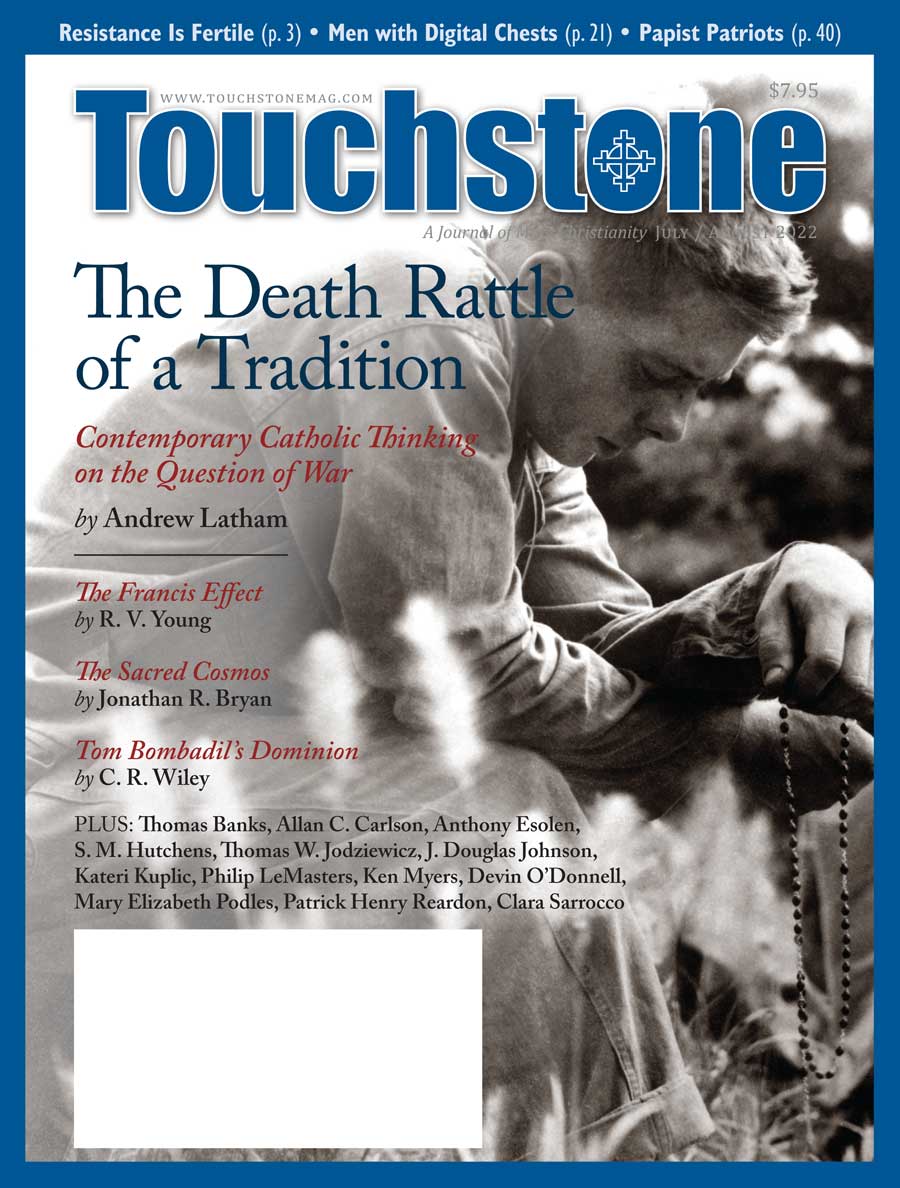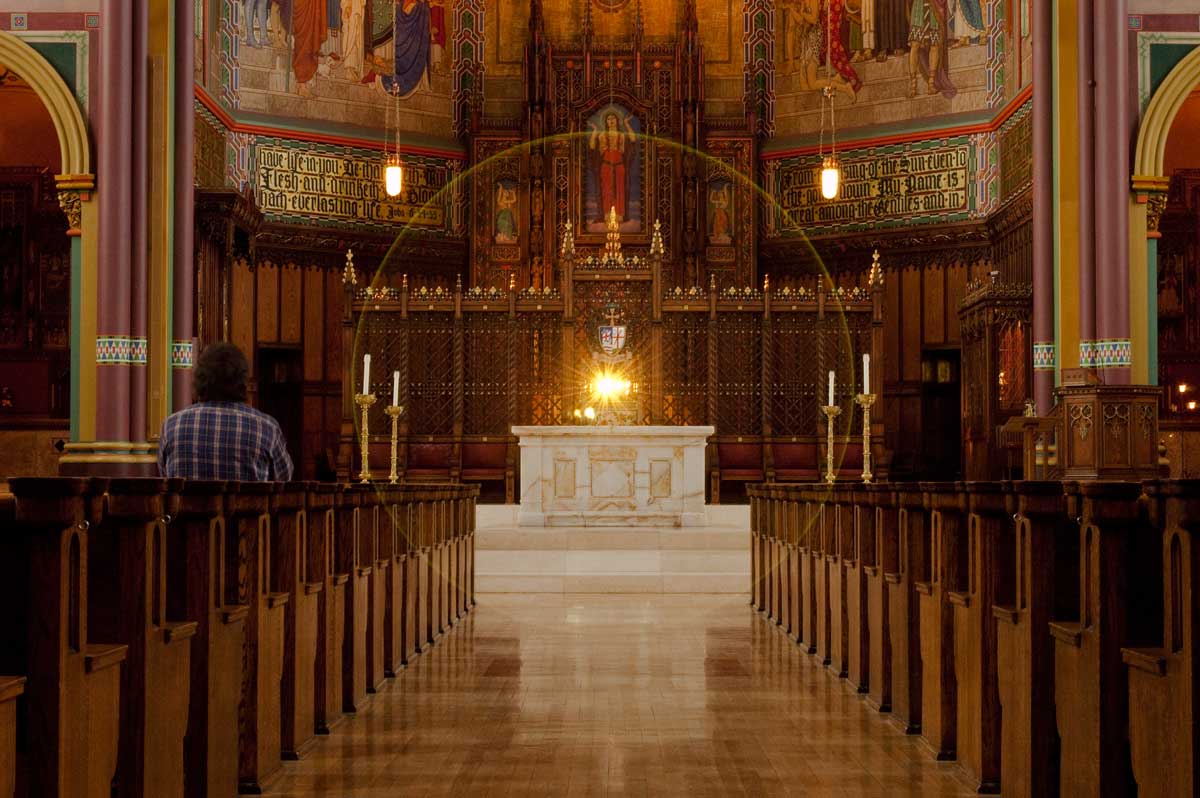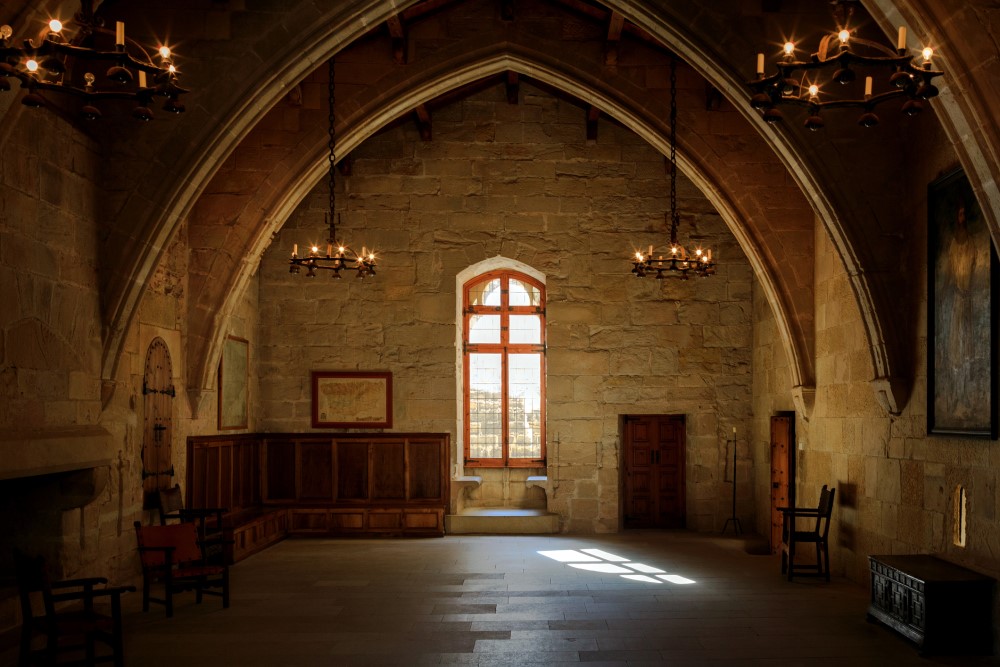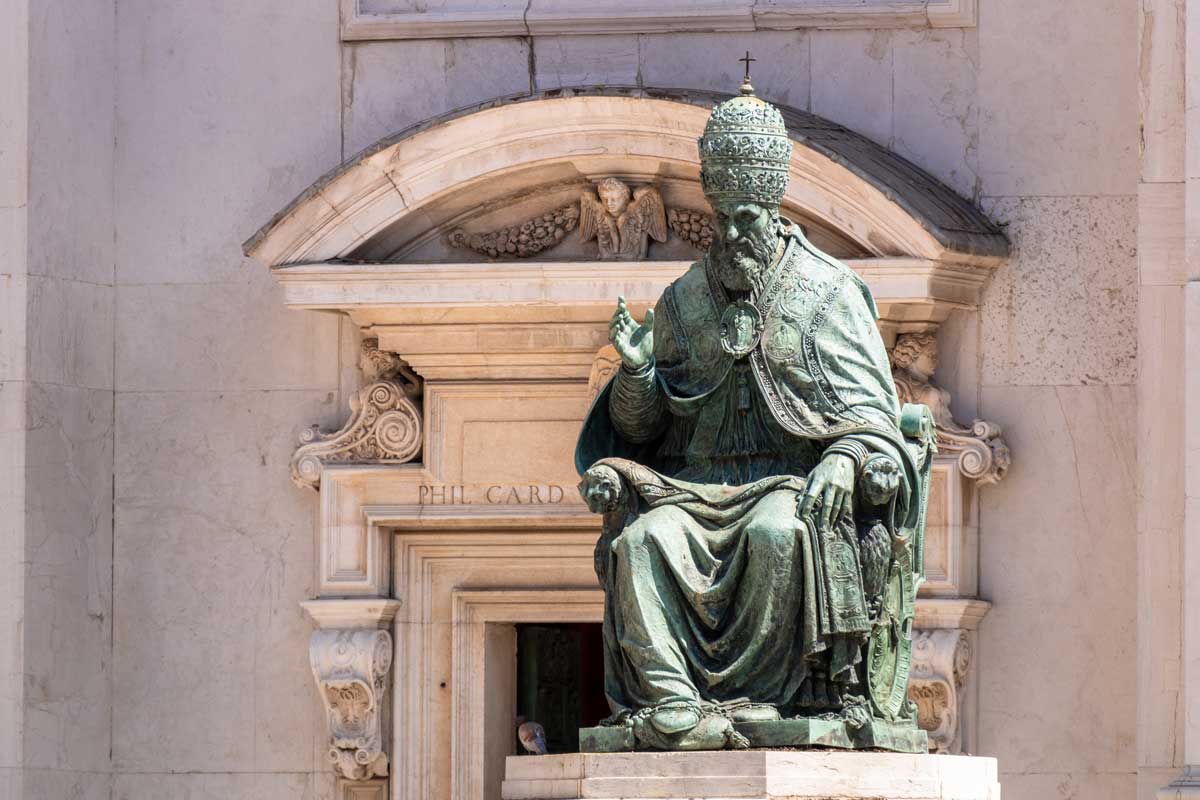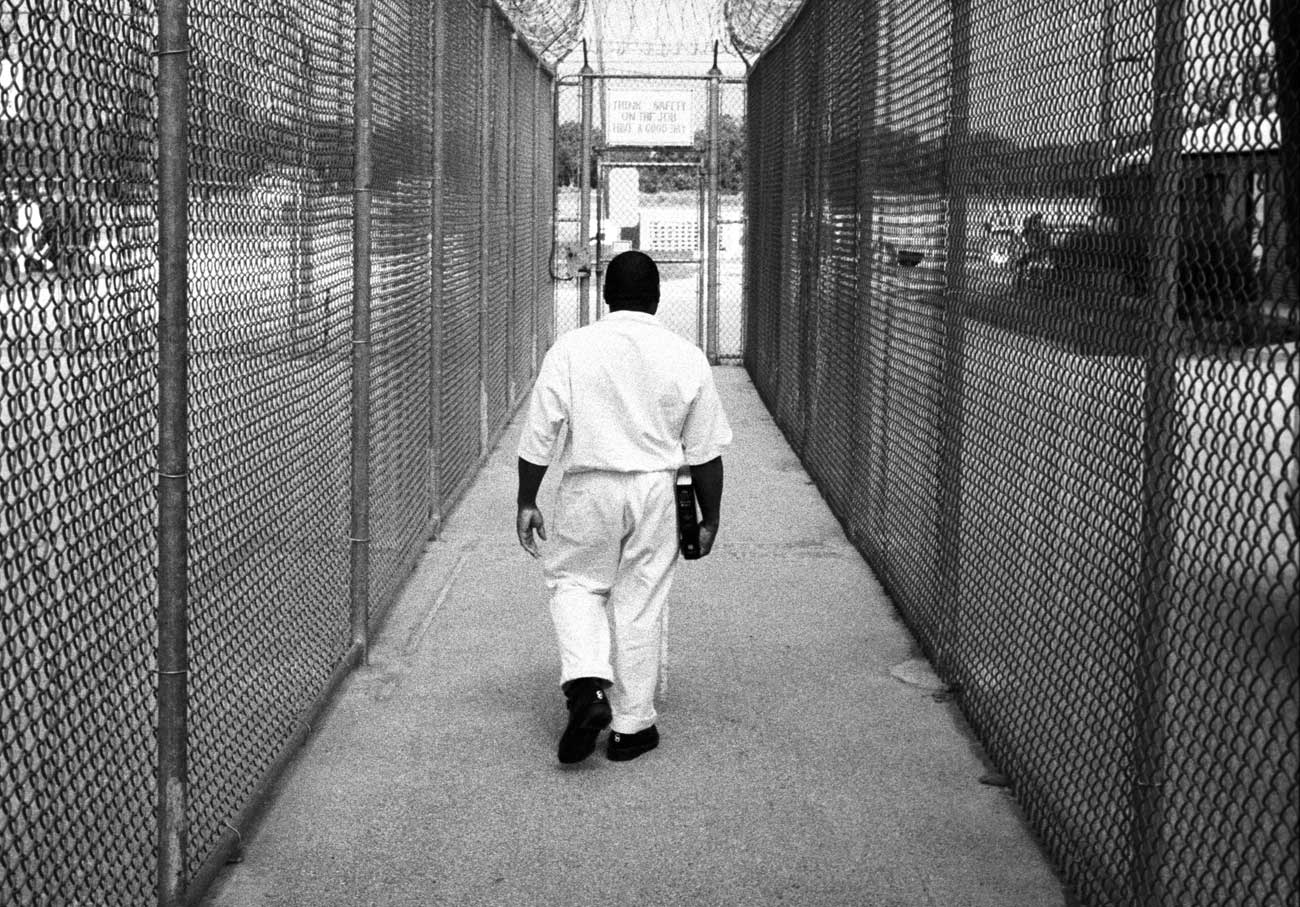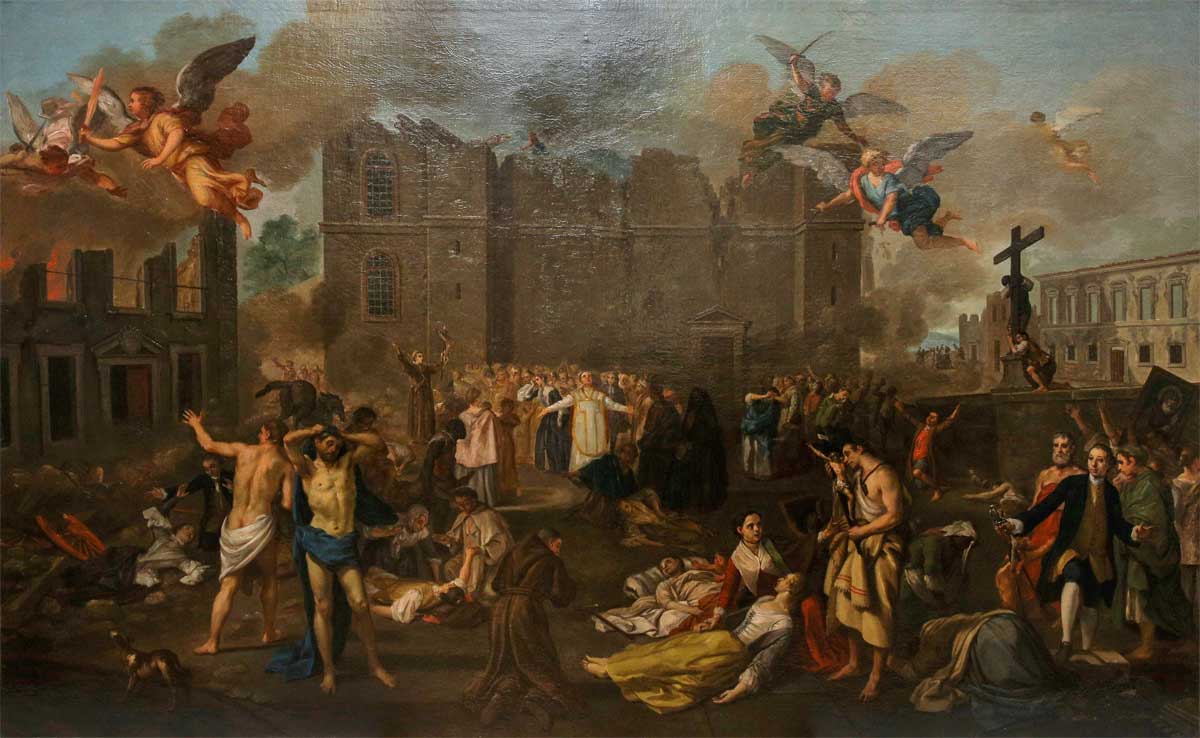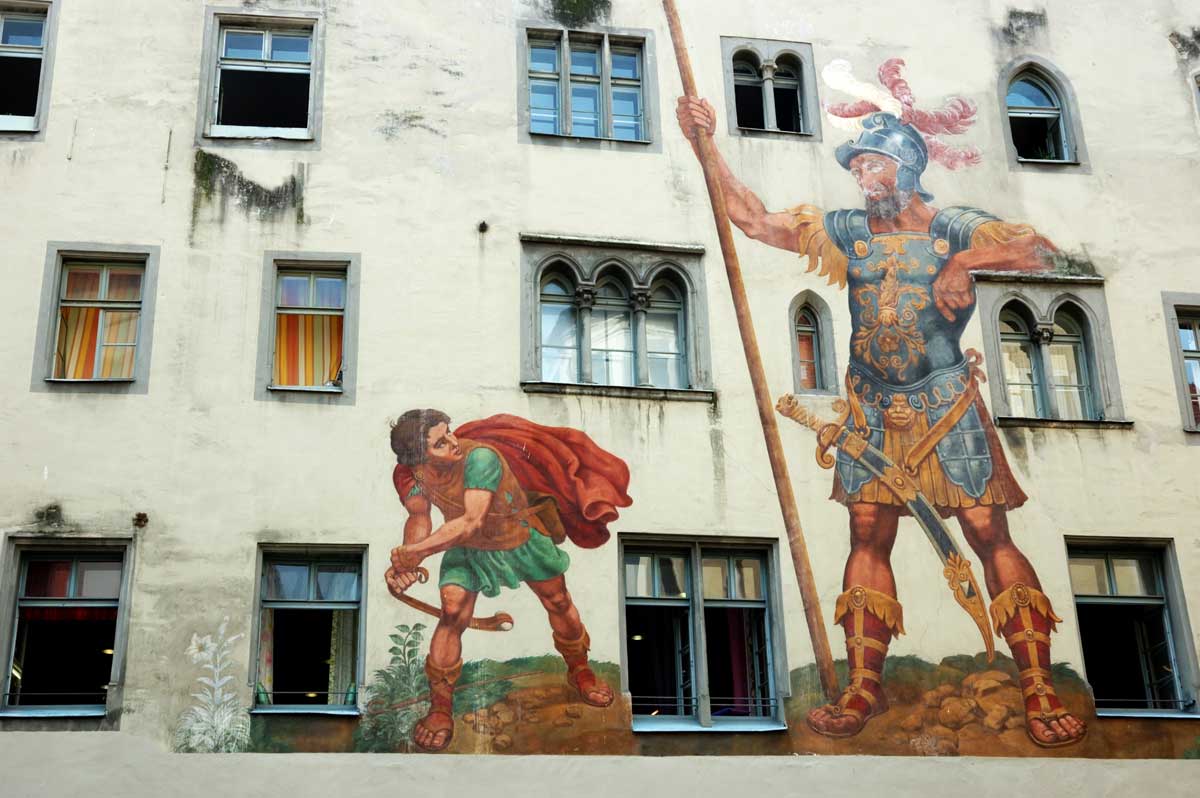The Death Rattle of a Tradition
Contemporary Catholic Thinking on the Question of War
It is no secret that since the 1960s, the Catholic tradition of moral reflection on international affairs, a tradition that has been unfolding at least since the time of St. Augustine, has taken a decidedly leftward turn. Whether the issue has to do with war and peace, development and the fight against poverty, protecting the environment, or encouraging disarmament, Catholic doctrine—as articulated most comprehensively in the Compendium of the Social Doctrine of the Church—has become virtually indistinguishable from the views of leftist scholars and progressive activists.
Nor are the reasons for this turn unknown. Beginning in the interwar period but accelerating in the 1960s, Catholic international thought has been powerfully reshaped by several emergent intellectual trends. Chief among these are Marxist theories of imperialism; the dependencia theories of thinkers like André Gunder Frank and Samir Amin; the writings of the Frankfurt School theorists, such as Herbert Marcuse; the thought of "peace studies" scholars, such as Johan Galtung; the Catholic pacifism of James Douglass and Gordon Zahn; the active nonviolence embodied in Gandhi and Martin Luther King Jr.; and, of course, the liberation theology of thinkers like Gustavo Gutiérrez and the Jesuit priest Juan Luis Segundo.
A Rupture, Not a Development
What is less well understood, however, is the profound degree to which this "progressive turn" constitutes a rupture in the 1,500-years-long history of what I will call the "deep tradition of Christian international thought." The conceit on the left is that developments in Rome's moral reflection on international affairs in the decades since the Second Vatican Council have been nothing more than the unfolding of that millennium-and-a-half-old tradition. The reality, however, is quite different. For the past half-century or so, progressive Catholic thinkers have been less interested in updating traditional Christian international doctrine in light of "the signs of the times" than in remaking that doctrine in the image of their radically nontraditional political theology of war and peace.
The result has been the death of Catholic international theory, at least in the sense that the distinctively Christian cum Catholic tradition of reflection on international affairs, which persisted from the time of St. Augustine until the mid-twentieth century, has passed from this world. In its place has congealed a toxic brew of progressive bromides that is indistinguishable, except for a thin theological foam, from the secular, materialist, cultural-Marxist international thought currently prevalent on the progressive left.
In this article, I will focus on a relatively under-explored aspect of the rupture in this Christian tradition of thought: the causes of war. I adopt this focus not because the causes of war are necessarily more important than other aspects of war (its morality, legal regulation, and so forth), nor because the study of war is necessarily more important than the study of other aspects of international relations (development, human rights, and so on). Rather, I adopt it because it has a provenance that goes back to St. Augustine, making it unquestionably the most enduring element of both the broadly Christian and specifically Catholic tradition of theorizing the international. Consequently, I believe that studying changes in this body of thought and doctrine may open the most meaningful window through which to view the "great divide" that has opened up between the deep tradition of Christian international thought and Catholic international thought today.
Two Traditional Causes
What does the deep tradition have to say about the causes of war? At the risk of oversimplifying a rich and varied body of moral and political reflection, we can say that pre-twentieth-century Catholic thought located the causes of war in two things: humanity's fallen nature and the anarchic nature of the international system.
With respect to the first of these, from the time of the Church Fathers, pivotal Christian thinkers such as Origen, Tertullian, and Augustine argued that war was a byproduct of personal sin. As a result of Adam's fall, they all agreed, pride, vanity, and what Augustine called libido dominandi—the lust for domination—drive princes to attempt to subjugate their own people and their neighbors, and to perpetrate other grave evils. As Augustine and Aquinas argued most explicitly, humanity's fallen nature gives rise to two kinds of war: unjust wars, motivated by pride, greed, and libido dominandi; and just wars, fought in self-defense against unjust aggression, to vindicate the rights of those wronged, or to otherwise punish evil-doers.
With regard to the second cause, from the Middle Ages on, Christian thinkers such as the imperial apologist Dante Alighieri and the French royal publicist Pierre Dubois came to view what we would now call the "anarchic international system" as another important, if mostly permissive, cause of war. Such an international system, they argued, by its very nature lacks a universal political power that could mediate disputes between kingdoms and other lesser powers and so maintain the peace. As a result, the conflicts that naturally arise between political units pursuing their own interests can only be resolved by arbitration, diplomacy, or, if those fail, war.
For Dante, this argument took a very specific form: war was caused by the lack of a universal empire that could definitively adjudicate disputes between lesser powers. So, too, for his contemporary Dubois. A French lawyer and political pamphleteer during the reign of Philip IV the Fair, and author most famously of De recuperatione Terrae Sanctae ("On the Recovery of the Holy Land"), Dubois argued that war was caused by the lack of an international council charged with maintaining the peace between sovereign principalities—what we would now call providing "collective security."
Radically New Explanations
Built on deep Christian tradition, this was the prevailing etiology of war among Catholic thinkers through the early twentieth century: war was the product of fallen human nature and of the anarchic nature of the international order. Beginning in earnest in the 1960s, however, Rome initiated a root-and-branch re-examination of this understanding of war. As Gaudium et Spes—one of four constitutions produced by Vatican II which sought to explain the Catholic Church to the non-Catholic world—put it, the post-Vatican-II era was to be a time for "a completely fresh appraisal" of war.
Andrew Latham is a Professor of Political Science at Macalester College in Saint Paul, Minnesota. He is the author of Theorizing Medieval Geopolitics: War and World Order in the Age of the Crusades (2011), The Holy Lance (2015), a novel dealing with the Third Crusade, and Medieval Sovereignty (2022).
subscription options
Order
Print/Online Subscription

Get six issues (one year) of Touchstone PLUS full online access including pdf downloads for only $39.95. That's only $3.34 per month!
Order
Online Only
Subscription

Get a one-year full-access subscription to the Touchstone online archives for only $19.95. That's only $1.66 per month!
bulk subscriptions
Order Touchstone subscriptions in bulk and save $10 per sub! Each subscription includes 6 issues of Touchstone plus full online access to touchstonemag.com—including archives, videos, and pdf downloads of recent issues for only $29.95 each! Great for churches or study groups.
Transactions will be processed on a secure server.
more on Catholic from the online archives
more from the online archives
calling all readers
Please Donate
"There are magazines worth reading but few worth saving . . . Touchstone is just such a magazine."
—Alice von Hildebrand
"Here we do not concede one square millimeter of territory to falsehood, folly, contemporary sentimentality, or fashion. We speak the truth, and let God be our judge. . . . Touchstone is the one committedly Christian conservative journal."
—Anthony Esolen, Touchstone senior editor





